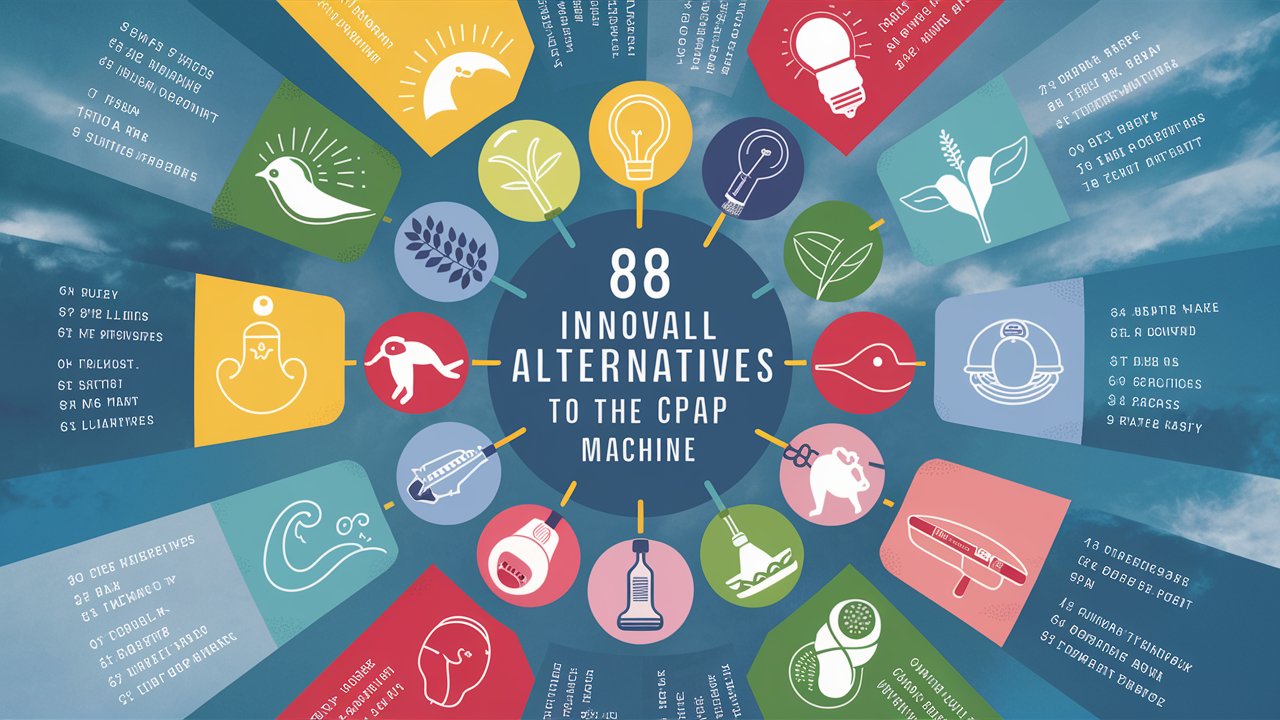Here is a table exploring 10 alternatives to birth control pills, along with their pros and cons:
| Alternative | Pros | Cons |
|---|---|---|
| Copper IUD | – Highly effective (over 99% with perfect use) | – Insertion can be painful |
| – Long-term (up to 10 years) | – May cause heavier periods and cramps | |
| – No hormones | – Slightly higher risk of pelvic inflammatory disease | |
| Hormonal IUD | – Highly effective (over 99% with perfect use) | – Insertion can be painful |
| – Long-term (3-7 years) | – May cause irregular bleeding | |
| – Reduces periods | – Slightly higher risk of pelvic inflammatory disease | |
| Implantable Rod (Nexplanon) | – Highly effective (over 99% with perfect use) | – Insertion and removal require minor surgery |
| – Long-term (up to 5 years) | – May cause irregular bleeding | |
| – Can improve acne and regulate periods | – Slightly higher risk of infection | |
| Barrier Methods | – Condoms provide protection against STIs | – Require proper use each time |
| – Diaphragms and cervical caps are hormone-free | – Less effective than hormonal methods | |
| – Spermicides kill sperm on contact | – Diaphragms require fitting and may cause UTIs | |
| Natural Family Planning | – No hormones or devices | – Requires discipline and accurate cycle tracking |
| – Inexpensive | – Less effective than other methods | |
| – Allows you to understand your cycle | – Abstinence required during fertile days | |
| Sterilization | – Highly effective permanent solution | – Surgical procedure with risks |
| – No ongoing costs or effort | – Difficult to reverse | |
| – Tubal ligation or vasectomy options | – Permanent decision | |
| Withdrawal | – No hormones or devices | – Requires perfect use to be effective |
| – Inexpensive | – Less effective than other methods | |
| – Allows spontaneity | – Provides no protection against STIs | |
| Fertility Awareness | – No hormones or devices | – Requires discipline and accurate tracking |
| – Inexpensive | – Less effective than other methods | |
| – Allows you to understand your cycle | – Abstinence required during fertile days | |
| Lactational Amenorrhea | – No hormones or devices | – Only effective for up to 6 months postpartum |
| – Inexpensive | – Requires exclusive breastfeeding | |
| – Allows spontaneity | – Less effective than other methods | |
| Vaginal Ring | – Convenient, only changed monthly | – May cause irregular bleeding |
| – Reduces periods | – Slightly higher risk of blood clots | |
| – Improves acne | – Requires prescription |
The choice of birth control method depends on individual preferences, health factors, and lifestyle. It’s important to discuss options with a healthcare provider to determine the best fit.
In a world where choices regarding our bodies have often been limited, exploring alternatives to birth control emerges as both a revolutionary act and a path towards personal empowerment.
Beyond the familiar realm of contraceptive pills lies a diverse spectrum of options waiting to be embraced by those seeking autonomy over their reproductive health journey. It’s time to challenge the status quo, unbox traditional perceptions, and venture into uncharted territories with an open mind that craves new possibilities.
Embarking on this journey means breaking free from the confines of conventionality and venturing into a realm teeming with innovative solutions and fresh perspectives. The narrative around birth control is evolving, calling for us to step away from monotonous routines and delve into a world where choices are varied, vibrant, and catered to individual needs.
Join us on a quest that not only informs but uplifts; let’s unravel the tapestry of alternatives together, armed with knowledge, optimism, and the belief that different can indeed be delightful in more ways than one.
As we embark on this voyage beyond the pill, we invite you to reimagine your relationship with birth control—a voyage brimming with potential for growth, insight, and maybe even a touch of magic along the way.
Hormonal Alternatives: Breaking Free from the Pill Paradigm.
Ready to move beyond the limitations of traditional birth control pills? Hormonal alternatives offer a spectrum of choices that cater to diverse needs and preferences. Let’s dive into the realm of hormonal IUDs, implants, and injections, shedding light on their benefits and considerations towards empowering your contraceptive journey.
Hormonal IUDs like Mirena or Skyla provide an effective long-term solution with minimal user intervention. Say goodbye to daily pill-popping and hello to years of worry-free protection.
While these devices can cause side effects like irregular bleeding in some individuals, many users report lighter periods as a bonus feature. Implants such as Nexplanon offer discrete implantation under the skin, delivering hormones steadily for up to three years. Imagine the convenience of forgetting about contraception on a day-to-day basis while relishing in the reliability of this long-acting method.
Personal narratives can paint a vivid picture of real experiences with hormonal alternatives. Meet Sarah, who found freedom from pill-induced mood swings with her hormonal IUD, embracing a newfound sense of empowerment over her reproductive health.
Jessica’s seamless transition from oral contraceptives to an implant restored her confidence in exploring different avenues beyond conventional birth control methods. These shared stories illuminate the possibilities that hormonal alternatives offer in customizing your contraceptive approach, presenting a tapestry of choices waiting for you to unravel their potential benefits.
Non-Hormonal Alternatives.
When it comes to non-hormonal birth control options, women have a variety of choices that can effectively prevent pregnancy without the need for synthetic hormones. Barrier methods like condoms or diaphragms offer a physical barrier to sperm, providing protection while allowing for spontaneous intimacy without hormonal interference.
Fertility awareness methods, such as tracking ovulation cycles and monitoring cervical mucus changes, empower individuals to understand their fertility patterns and make informed decisions about when to engage in unprotected sex. Additionally, copper IUDs offer long-lasting contraception without hormones, utilizing the natural properties of copper to create an inhospitable environment for sperm.
One significant advantage of non-hormonal alternatives is their minimal impact on hormonal balance and potential side effects compared to traditional hormonal birth control methods.
By avoiding synthetic hormones altogether, individuals can sidestep common issues like mood swings, weight fluctuations, or decreased libido associated with hormonal contraceptives. Non-hormonal options often provide natural solutions that work harmoniously with the body’s reproductive system, enhancing overall well-being while effectively preventing unwanted pregnancies.
For those interested in exploring non-hormonal birth control further, resources abound to support informed decision-making. Websites dedicated to fertility awareness education can guide individuals in understanding their bodies better and implementing safe sex practices based on menstrual cycle tracking.
Clinics offering copper IUD insertion services provide professional assistance for those seeking long-term contraceptive solutions without hormones. By delving into the realm of non-hormonal alternatives with an open mind and curiosity, individuals can take charge of their reproductive health in a way that aligns with their bodies and values.
Natural Remedies for Birth Control: Harnessing Nature’s Power.
In a world where modern medicine often takes center stage, the realm of natural remedies offers a refreshing and empowering avenue for women seeking alternatives to conventional birth control methods. Delving into the world of herbs, supplements, and holistic practices like acupuncture can provide a unique perspective on managing fertility naturally.
These alternative approaches work by harnessing the power of nature to balance hormones and prevent pregnancy in ways that resonate with those looking for more organic solutions.
One intriguing aspect of natural remedies for birth control is their ability to address not just the physical, but also the emotional and spiritual aspects of reproductive health. For example, herbs like chaste berry and dong quai are known for their hormone-balancing properties, supporting regular menstrual cycles and potentially reducing the likelihood of conception.
Supplements such as vitamin C or zinc can also play a role in contraception by affecting sperm motility or egg implantation. By exploring these natural options, individuals can tap into a more holistic approach to fertility management that considers their well-being on multiple levels.
To further illustrate the transformative potential of natural remedies in birth control, personal testimonials from individuals who have embraced these practices can offer valuable insights. Stories of women who have successfully used herbal blends to regulate their cycles or incorporated acupuncture sessions into their fertility journey can inspire others to consider these alternative paths.
Through sharing these real-life experiences, readers can witness firsthand how natural remedies have empowered individuals to take charge of their reproductive choices in a gentle yet effective manner.
Tracking Apps: Navigating Your Fertility Journey Digitally.
In a world where technology revolutionizes almost every aspect of daily life, fertility tracking apps have emerged as modern tools for managing birth control without relying on traditional methods. These innovative apps offer individuals the opportunity to understand their bodies better and take charge of their reproductive health in a personalized way.
By introducing tracking apps as a novel alternative to conventional birth control, women can equip themselves with knowledge and agency to make informed decisions about their reproductive choices.
When delving into the realm of fertility tracking apps, users are presented with a diverse array of options, each offering unique features to meet individual needs. From predicting ovulation cycles to logging menstrual patterns, these apps provide insightful data that can empower users to understand their fertility window effectively.
By reviewing popular fertility tracking apps like Clue, Flo, or Natural Cycles, individuals can explore different interfaces, accuracy levels, and user experiences to choose the app that aligns best with their preferences and goals.
Offering guidance on effectively using tracking apps for birth control purposes not only empowers users but also opens up a world of possibilities beyond conventional methods. By encouraging an open-minded approach towards incorporating technology into one’s reproductive journey, individuals can break free from the limitations imposed by traditional birth control options.
Embracing the resourcefulness of these apps allows users to navigate their fertility landscape with confidence and curiosity, making the exploration of alternatives a dynamic and enjoyable experience.
Embracing Long-Term Birth Control Alternatives.
As we wrap up our exploration of alternatives to conventional birth control methods, let’s delve into the realm of long-term solutions. Sterilization procedures like tubal ligation or devices such as Essure and Adiana offer individuals a lasting contraceptive option that eliminates the need for daily management.
While misconceptions surrounding the safety and efficacy of these options exist, it is vital to recognize that these methods provide a permanent solution for those who are certain about their family planning choices.In concluding each section with a summary of key points, empowering our readers to make informed decisions remains at the core of our mission.
By shedding light on the various alternatives available, addressing common myths, and highlighting success stories from individuals who have embraced unconventional paths to birth control, we aim to equip you with the knowledge and confidence needed to navigate your reproductive health journey with agency and awareness.
Remember, exploring alternatives is not just about breaking free from traditional norms; it is about embracing new possibilities in a playful yet resourceful manner that empowers you to take charge of your own well-being.
I am commitment to crafting compelling narratives and delivering insightful content continues to inspire and inform readers across various platforms. Explore her articles on AlternativesZone.com and FactAfterFact.com to experience a rich tapestry of knowledge and discovery. Here I Analyze and Test the products and services together with my team before we recommend them to our users. Nice Reading Here!








No responses yet